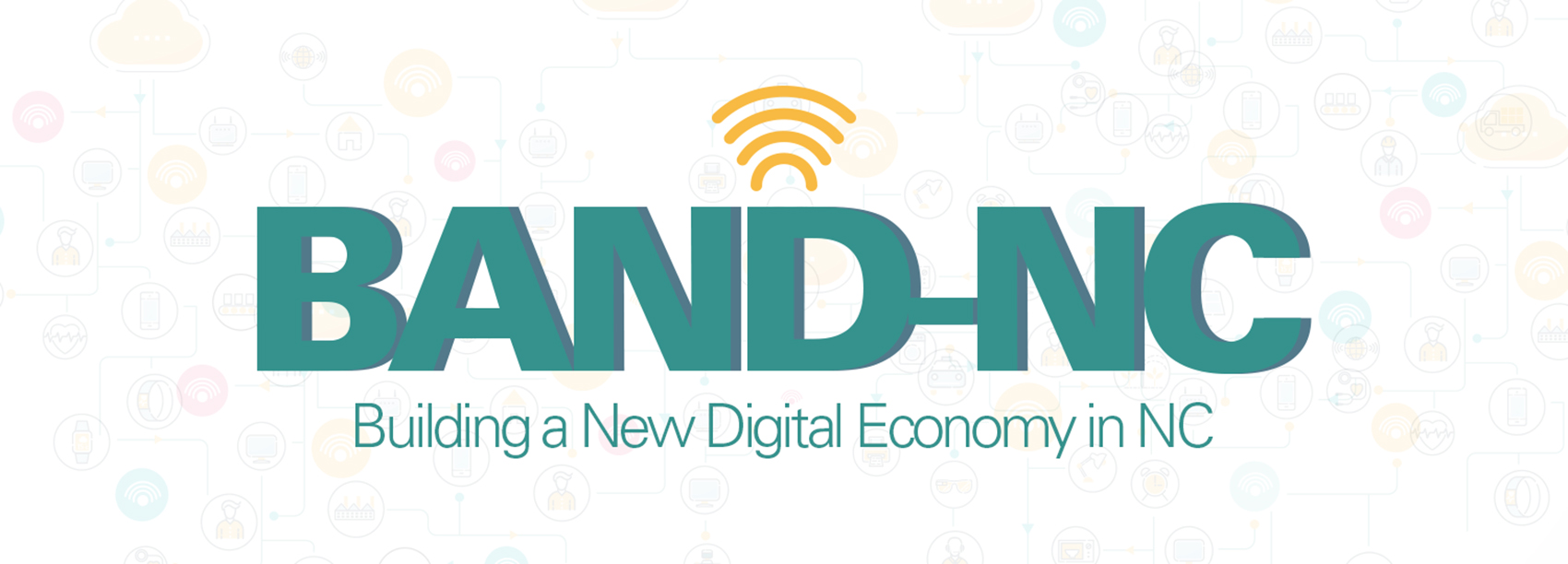IEI Receives $1.2M Digital Equity Grant for Broadband Expansion and Digital Inclusion Efforts

The N.C. Department of Information Technology has named the Institute for Emerging Issues (IEI) at NC State University as one of eight state government partners to receive a Digital Equity Grant for broadband expansion and digital inclusion efforts in North Carolina.
According to the NCDIT announcement made on January 18, 2023, IEI was awarded $1,236,715.90 to develop and help implement digital inclusion plans across the state to support Gov. Cooper’s goal to increase broadband adoption to 80% across all racial subgroups by 2025.
“Through this award, the BAND-NC program at IEI will be able to expand our digital inclusion planning efforts across North Carolina and gets us within sight of our goal of having a plan in every county of the state,” said Samantha Graham, IEI’s Digital Inclusion Initiative Leader. “This grant helps to ensure North Carolina remains a leader in digital inclusion and supports our partners in local level planning efforts and implementation projects to promote access, adoption, and use of broadband.”
To learn more about IEI’s broadband expansion and digital inclusion efforts, visit our website.
The following press release was originally published by NCDIT.
State Awards $9.9M in Grants to Expand Digital Equity and Literacy Initiatives
First phase funds projects by state agencies, universities for digital literacy training, device access and digital inclusion planning as part of Governor Cooper’s plan to close the digital divide
RALEIGH, N.C. – The N.C. Department of Information Technology’s (NCDIT) Division of Broadband and Digital Equity today announced $9.9 million in awards for the state’s first Digital Equity Grant, which will help North Carolinians afford high-speed internet, obtain digital devices and access digital literacy resources.
“All North Carolinians need the knowledge and the devices to safely access the internet,” said Governor Roy Cooper. “This first round of digital equity funding will help us build the foundation of the effort to make sure everyone can get online in an affordable way.”
The Division’s Office of Digital Equity and Literacy awarded grants to the following state government entities:
• East Carolina University: Awarded $1,397,102.70 to train community health workers across the 29-county eastern N.C. subregion to provide digital literacy and skills training sessions and partner with libraries to deploy computing devices, hotspots and rugged internet hubs.
• N.C. Department of Health and Human Services, Division of Aging and Adult Services: Awarded $1,128,647.10 to train and support digital navigators to serve the digital needs of older adults in all 100 counties.
• N.C. Department of Adult Correction, Education Services: Awarded $1,399,383.80 to upfit classrooms in prison facilities with computer labs and devices and increase digital literacy among incarcerated individuals enrolled in education services.
• N.C. State University – Institute for Emerging Issues: Awarded $1,236,715.90 to develop and help implement digital inclusion plans across the state to support Gov. Cooper’s goal to increase broadband adoption to 80% across all racial subgroups by 2025.
• N.C. Department of Health and Human Services, Office of Rural Health: Awarded $1,600,000 to implement a train-the-trainer digital skills and health language program for rural communities across the state, provide technical and capacity building support for organizations, and increase access to affordable internet in migrant housing.
• N.C. Business Committee for Education, Inc.: Awarded $1,400,000 to expand technology teams to provide free training and paid experience to high school students who can provide technical training for adults and peers and help desk support to their schools and communities.
• N.C. Department of Transportation, Office of Civil Rights: Awarded $1,320,125.31 to provide job-specific digital skills training and devices for individuals enrolled in N.C. Department of Transportation workforce trainings.
• N.C. Division of Historic Sites and Properties: Awarded $468,403.60 to increase the availability and accessibility of online content by hiring a digital inclusion coordinator to develop online offerings that feature various assistive technologies and fund broadband subscription costs for visitors at historic sites and properties.
“Through this collaboration with our state partners, we can advance meaningful digital equity, inclusion and literacy projects in communities across the state,” said NCDIT Secretary and State Chief Information Officer Jim Weaver. “These Digital Equity Grants will help fund digital device distribution, technology support and workforce development programs that will help us close the digital divide.”
Using funds from the federal American Rescue Plan Act (ARPA), the multi-phased Digital Equity Grant encourages collaborative partnerships that positively impact populations identified in the Digital Equity Act, including low-income households, individuals who primarily reside in a rural area, older Americans/aging residents, incarcerated and/or second chance citizens/reentry/justice involved, veterans, individuals with disabilities, individuals with a language barrier (including individuals who are English learners or whose first language is not English and/or individuals who have low levels of literacy), and individuals who are members of a racial or ethnic minority group.
NCDIT will post details about individual grant awards to its website once all awards have been contracted. The second phase of the digital equity grant program will open by March to applications from municipalities and nonprofits, community-based organizations, and key stakeholder groups for local digital inclusion projects. A total of $14 million will be available to fund proposals made during phase two of the grant program.
For more information about the NCDIT Division of Broadband and Digital Equity or Gov. Cooper’s plan to close the digital divide in North Carolina, please visit https://www.ncbroadband.gov.
This post was originally published in Institute for Emerging Issues.
- Categories: